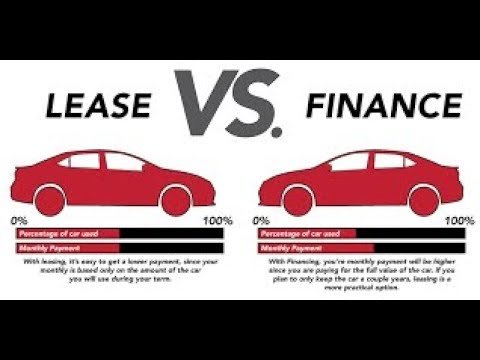Online finance courses have become increasingly popular in recent years, offering a flexible and affordable way to gain valuable knowledge and skills in the field of finance. These courses are designed to provide students with a comprehensive understanding of financial concepts, principles, and practices, without the constraints of traditional classroom settings.
The rise of online finance education can be attributed to several factors, including the growing demand for financial literacy, the need for professional development and career advancement, and the convenience of studying from anywhere in the world. Online finance courses cater to a diverse range of learners, from those seeking to enhance their financial management skills to professionals looking to advance their careers in banking, investment, accounting, or financial analysis.
One of the primary benefits of online finance courses is their flexibility. Students can access course materials, lectures, and assignments at their own pace, allowing them to balance their studies with work, family, and other commitments. Additionally, many online finance programs offer asynchronous learning options, enabling students to engage with course content and instructors at times that suit their schedules.
Another advantage of online finance courses is their affordability. By eliminating the need for physical classrooms and reducing overhead costs, online programs can often provide high-quality education at a lower cost compared to traditional on-campus programs. This accessibility makes finance education more attainable for individuals from various socioeconomic backgrounds, promoting greater inclusivity and diversity in the field.
Moreover, online finance courses offer a wide range of specializations and concentrations, allowing students to tailor their studies to their specific interests and career goals. From corporate finance and investment management to financial planning and risk analysis, online programs provide a wealth of options to explore different facets of the finance industry.
Types of Finance Courses Available Online
Online finance courses cover a wide range of topics to cater to various career goals and interests. Here’s an overview of the different types of finance courses you can find online:
Accounting and Bookkeeping:
These courses teach the fundamentals of financial accounting, managerial accounting, tax accounting, and bookkeeping practices. They are essential for roles in accounting firms, corporate finance departments, and financial analysis.
Corporate Finance:
Corporate finance courses delve into topics like financial statement analysis, capital budgeting, valuation methods, mergers and acquisitions, and risk management. These courses are beneficial for those pursuing careers in corporate finance, investment banking, or financial consulting.
Investment Banking:
Investment banking courses cover areas such as financial modeling, valuation techniques, deal structuring, and capital raising strategies. They are tailored for professionals interested in investment banking, mergers and acquisitions, or equity research.
Personal Finance and Financial Planning:
These courses focus on managing personal finances, including budgeting, investing, retirement planning, tax strategies, and estate planning. They are valuable for individuals seeking to improve their financial literacy and make informed decisions about their money.
Risk Management and Insurance:
Courses in risk management and insurance explore topics like risk assessment, risk mitigation strategies, insurance products, and regulatory compliance. They are relevant for careers in the insurance industry, risk management departments, or financial risk analysis.
Financial Markets and Investments:
These courses cover stock markets, fixed-income securities, derivatives, portfolio management, and investment strategies. They are essential for those interested in careers in asset management, wealth management, or trading and investment analysis.
Fintech and Blockchain:
With the rise of financial technology, courses in fintech and blockchain have become increasingly popular. They cover topics like digital banking, peer-to-peer lending, cryptocurrencies, and blockchain applications in finance.
Many online finance courses also offer specialized tracks or concentrations in areas like real estate finance, project finance, or Islamic finance, catering to specific industry needs or regional markets.
Top Providers of Online Finance Courses
The world of online finance education is vast, with numerous providers offering a wide range of courses and programs. From prestigious universities to specialized bootcamps and massive open online courses (MOOCs), the options are plentiful, catering to diverse learning preferences and career goals.
Universities and Colleges:
Many renowned universities have embraced online learning, offering finance courses and degrees through their virtual platforms. These institutions leverage their academic expertise and resources to deliver high-quality online programs. Examples include Harvard University’s online courses in financial management, the University of Pennsylvania’s digital finance programs, and the Massachusetts Institute of Technology’s (MIT) online finance and fintech offerings.
Bootcamps and Specialized Providers:
In recent years, bootcamps and specialized providers have emerged as popular choices for individuals seeking focused and intensive training in finance. These providers often offer shorter, accelerated programs designed to equip learners with practical skills and industry-relevant knowledge. Notable examples include Coursera’s finance specializations, edX’s finance courses from top universities, and dedicated finance bootcamps like Springboard and Trilogy Education Services.
Massive Open Online Courses (MOOCs):
MOOCs have revolutionized access to education by offering free or low-cost online courses from top institutions and educators. Platforms like Coursera, edX, and FutureLearn host a vast array of finance courses, ranging from introductory concepts to advanced topics like investment banking, financial modeling, and risk management. These courses often provide flexible learning schedules and the opportunity to earn verified certificates upon completion.
Professional Associations and Industry Organizations:
Various professional associations and industry organizations offer online finance courses and certifications. These programs are designed to enhance the skills and knowledge of finance professionals, helping them stay up-to-date with industry trends and best practices. Examples include the Chartered Financial Analyst (CFA) Institute, the Association for Financial Professionals (AFP), and the Global Association of Risk Professionals (GARP).
When choosing an online finance course provider, it’s essential to consider factors such as accreditation, course quality, instructors’ expertise, course format (self-paced or scheduled), and potential for earning recognized credentials or certifications. Additionally, many providers offer specializations or concentrations in specific areas of finance, allowing learners to tailor their education to their career goals.
8 Best Courses:
1. Financial Markets by Yale University on Coursera: This course provides an introduction to the world of finance, covering topics such as time value of money, risk management, and investment strategies.
2. Investing by University of Michigan on Coursera: This course teaches students how to invest in stocks, bonds, and other assets, and how to build a diversified investment portfolio.
3. Financial Analysis by University of Illinois on Coursera: This course covers financial statement analysis, ratio analysis, and financial modeling, and is designed for those who want to become financial analysts.
4. Corporate Finance by University of Pennsylvania on Wharton Online: This course covers the fundamentals of corporate finance, including capital budgeting, cost of capital, and dividend policy.
5. Financial Planning by University of California, Berkeley on edX: This course teaches students how to create a comprehensive financial plan, including retirement planning, estate planning, and tax planning.
6. Python for Finance by New York Institute of Finance on DataCamp: This course teaches students how to use Python for financial data analysis, including data visualization, statistical analysis, and machine learning.
7. Financial Modeling by Macquarie University on FutureLearn: This course covers financial modeling techniques, including forecasting, scenario analysis, and sensitivity analysis.
8. Certified Financial Planner (CFP) by College for Financial Planning on Kaplan: This course is designed for those who want to become certified financial planners, and covers topics such as financial planning, investment planning, and estate planning.
Choosing the Right Online Finance Course

When it comes to selecting an online finance course, there are several factors to consider to ensure you make the right choice for your goals and learning style. Cost is a significant consideration, as online courses can vary widely in price, from free offerings to thousands of dollars for comprehensive programs. It’s essential to evaluate the value proposition and determine if the course aligns with your budget and desired outcomes.
Time commitment is another crucial aspect to weigh. Online courses can range from self-paced, bite-sized modules to intensive, structured programs with fixed schedules and deadlines. Assess your availability and preferred learning pace to find a course that fits your lifestyle and commitments.
Prerequisites are also important to consider. Some online finance courses may require prior knowledge or experience, while others are designed for beginners. Ensure you meet the necessary prerequisites or are willing to bridge any gaps before enrolling.
Instructor expertise and reputation should be a key factor in your decision. Look for courses taught by industry professionals, renowned academics, or experienced practitioners who can provide valuable insights and practical knowledge. Instructor credentials, teaching style, and student reviews can help you gauge their effectiveness.
The learning format is equally important. Online finance courses can be delivered through various mediums, such as video lectures, interactive modules, discussion forums, or a combination of these. Evaluate your preferred learning style and choose a format that aligns with how you best absorb and retain information.
Course Structure
Additionally, consider the course structure and materials provided. Well-designed courses should offer comprehensive resources, such as textbooks, case studies, quizzes, and hands-on projects, to reinforce your learning and provide practical application opportunities.
Finally, assess the level of support and community offered by the course provider. Access to instructors, teaching assistants, or fellow learners through discussion forums or virtual office hours can enhance your learning experience and provide valuable networking opportunities.
By carefully evaluating these factors, you can choose an online finance course that meets your specific needs, aligns with your goals, and provides a rewarding and effective learning experience.
Certifications and Credentials in Online Finance
Earning certifications and credentials in finance can be a valuable investment for professionals seeking to enhance their skills, knowledge, and career prospects. Online finance courses offer a wide range of certification options, allowing learners to specialize in areas such as financial planning, investment analysis, risk management, or corporate finance.
One of the most widely recognized certifications in the financial industry is the Certified Financial Planner (CFP) designation. This certification is offered by the CFP Board and requires candidates to complete an extensive education program, pass a rigorous exam, and meet experience and ethics requirements. Online courses can help prepare individuals for the CFP exam, covering topics such as retirement planning, estate planning, investment management, and tax planning.
Another popular certification is the Chartered Financial Analyst (CFA) program, administered by the CFA Institute. This globally recognized credential is highly valued in the investment management industry and covers areas like portfolio management, equity analysis, fixed income, derivatives, and alternative investments. Online courses can provide comprehensive preparation for the three levels of the CFA exam.
For those interested in risk management, the Professional Risk Manager (PRM) certification offered by the Professional Risk Managers’ International Association (PRMIA) is a valuable credential. Online courses can cover the essential concepts and techniques for managing various types of risks, including credit risk, market risk, operational risk, and enterprise risk management.
Corporate Finance
In the realm of corporate finance, the Certified Management Accountant (CMA) certification, granted by the Institute of Management Accountants (IMA), is highly regarded. Online courses can help candidates prepare for the two-part CMA exam, which covers topics such as financial planning, analysis, control, decision support, and professional ethics.
Additionally, online finance courses may offer specialized certifications in areas like financial modeling, data analysis, blockchain and cryptocurrency, or sustainable finance. These certifications can help professionals stay up-to-date with the latest trends and developments in the finance industry, making them more competitive and valuable in the job market.
Learning Experience with Online Finance Courses
Online finance courses offer a flexible and convenient learning experience, allowing students to study at their own pace and on their own schedule. The most common teaching format is through pre-recorded video lectures, which can be watched multiple times to reinforce understanding. These lectures are often supplemented with downloadable course materials, such as slides, readings, and case studies.
In addition to video lectures, many online finance courses incorporate interactive elements to enhance the learning process. Discussion forums provide a platform for students to engage with instructors and peers, ask questions, and share insights. Online quizzes and assignments are used to assess comprehension and reinforce key concepts.
Some online finance courses also offer live virtual classrooms, where students can participate in real-time lectures, presentations, and group discussions. This format replicates the traditional classroom experience, allowing for immediate feedback and collaboration with classmates.
Furthermore, many online finance programs incorporate practical components, such as simulations, virtual trading platforms, and real-world case studies. These hands-on experiences help students apply theoretical knowledge to practical scenarios, preparing them for real-world financial challenges.
Overall, the online learning experience for finance courses is designed to be engaging, interactive, and tailored to individual learning styles. With a combination of multimedia resources, interactive activities, and practical applications, students can gain a comprehensive understanding of financial concepts and develop the skills necessary for success in the finance industry.
Costs and Financing for Online Finance Education
The costs associated with online finance education can vary significantly depending on the program, institution, and course format. However, one of the primary advantages of online learning is that it often comes with a more affordable price tag compared to traditional on-campus programs.
Tuition costs for online finance courses and degrees can range from a few hundred dollars for individual courses to tens of thousands of dollars for comprehensive degree programs. Many reputable universities and colleges offer online finance programs at a lower tuition rate than their on-campus counterparts, making them an attractive option for cost-conscious students.
In addition to tuition fees, students may need to factor in the costs of textbooks, course materials, and any required software or technology. Some online programs may also charge additional fees for administrative services or online platform access.
For those seeking financial assistance, various options are available. Many online finance programs are eligible for federal financial aid, such as loans, grants, and work-study programs. Institutional scholarships and grants may also be available, particularly for students with outstanding academic records or financial need.
Furthermore, employers in the finance industry may offer tuition reimbursement or assistance programs for employees pursuing relevant online degrees or certifications. It’s always advisable to check with your employer’s human resources department to explore such opportunities.
Finally, there are numerous free online finance courses available through platforms like Coursera, edX, and FutureLearn. These courses are often offered by top universities and industry experts, providing valuable knowledge and skills without the financial burden of tuition fees. While these free courses may not lead to a formal degree or certification, they can be an excellent way to gain foundational knowledge or enhance specific finance-related skills.
Career Prospects after Online Finance Courses
Completing an online finance course can open up a wide range of career opportunities in various industries. With the knowledge and skills acquired, graduates can pursue roles such as financial analysts, investment bankers, personal financial advisors, accountants, and more.
One of the most sought-after careers for finance course graduates is in the financial services industry, including banks, investment firms, and insurance companies. These organizations highly value individuals with a strong understanding of financial principles, analytical abilities, and expertise in areas like risk management, portfolio management, and corporate finance.
Additionally, finance course graduates can find employment opportunities in corporate settings across various sectors. Companies in industries like technology, healthcare, manufacturing, and retail often require financial professionals to handle tasks such as budgeting, forecasting, and financial analysis to support business operations and strategic decision-making.
The field of personal finance also presents promising prospects for those with finance education. Personal financial advisors and planners assist individuals and families in managing their finances, including investment planning, retirement planning, and tax strategies.
Salary potential for finance course graduates can vary depending on factors such as the specific role, industry, location, and level of experience. However, finance careers generally offer competitive compensation packages. According to recent data, financial analysts, for instance, can expect an average annual salary ranging from $60,000 to $90,000, while investment bankers and personal financial advisors can earn significantly higher incomes, often exceeding six figures.
It’s important to note that while online finance courses provide a solid foundation, many employers in the finance industry may prefer or require candidates to hold bachelor’s or master’s degrees in related fields. However, the knowledge and credentials gained from online finance courses can serve as valuable stepping stones toward further education or entry-level positions in the finance sector.
Reputable Online Finance Degree Programs
Pursuing an online finance degree from a reputable institution can open doors to promising career opportunities in the financial sector. Many prestigious universities now offer fully online or hybrid programs, allowing students to earn their bachelor’s or master’s degree in finance without compromising on quality education. Here are some of the top online finance degree programs to consider:
Bachelor’s in Finance Programs:
-
University of Florida: The online Bachelor of Science in Business Administration with a specialization in Finance is offered through the renowned Warrington College of Business. The program provides a comprehensive curriculum covering financial management, investments, and corporate finance.
-
Penn State World Campus: Penn State’s online Bachelor of Science in Finance equips students with knowledge in areas like financial analysis, risk management, and portfolio management. The program is accredited by the Association to Advance Collegiate Schools of Business (AACSB).
-
Oregon State University: The online Bachelor of Science in Business Administration with a Finance option from Oregon State University offers a flexible and rigorous curriculum. Students gain expertise in financial modeling, valuation, and portfolio theory.
Master’s in Finance Programs:
-
Georgetown University: Georgetown’s online Master of Science in Finance program is designed for working professionals. It covers advanced topics like corporate finance, investment analysis, and financial modeling, preparing students for leadership roles in the finance industry.
-
University of Illinois at Urbana-Champaign: The online Master of Science in Finance from the Gies College of Business at Illinois is a STEM-designated program. It provides in-depth training in areas such as financial engineering, risk management, and quantitative finance.
-
Indiana University Bloomington: The online Master of Science in Finance from the Kelley School of Business at Indiana University offers concentrations in Corporate Finance and Investment Banking. The program emphasizes practical applications and real-world case studies.
Tips for Success in Online Finance Learning
Pursuing an online finance course requires discipline and effective strategies to make the most of the virtual learning experience. Here are some tips to help you succeed:
Establish a Dedicated Study Space:
Create a quiet, distraction-free study area to help you focus during lectures, assignments, and exams. Ensure it is well-lit, comfortable, and equipped with the necessary technology and resources.
Develop a Consistent Routine:
Treat your online classes like traditional in-person courses by setting a regular study schedule. Allocate specific times for attending lectures, completing assignments, and reviewing materials to maintain consistency and avoid procrastination.
Practice Effective Time Management:
Online courses offer flexibility, but they also require excellent time management skills. Use a planner or calendar to keep track of deadlines, assignments, and exam dates. Break down larger tasks into smaller, manageable steps to avoid feeling overwhelmed.
Actively Participate and Engage:
Online learning can sometimes feel isolating, so make an effort to participate in discussions, ask questions, and engage with your instructors and classmates. This interaction can deepen your understanding and foster a sense of community.
Leverage Online Resources:
Take advantage of the wealth of online resources available, such as recorded lectures, supplemental materials, virtual libraries, and online forums. These resources can provide additional support and clarification when needed.
Stay Organized:
Maintain a well-organized system for storing and accessing course materials, notes, and assignments. Use digital folders, cloud storage, or note-taking apps to keep everything in one place and easily accessible.
Practice Self-Discipline:
Online learning requires a high level of self-discipline and motivation. Set realistic goals, create a study plan, and hold yourself accountable for completing tasks and meeting deadlines.
Seek Support When Needed:
Don’t hesitate to reach out to your instructors, academic advisors, or classmates if you encounter difficulties or need clarification. Many online programs offer support services and resources to help you succeed.
By implementing these tips and strategies, you can maximize your learning experience and increase your chances of success in your online finance courses.
Future of Online Finance Education
One notable trend is the rise of micro-credentials, which allow learners to acquire specific skills and knowledge in a focused and flexible manner. These bite-sized credentials cater to the demands of the modern workforce, enabling professionals to upskill or reskill quickly without committing to a full-fledged degree program.
Virtual reality (VR) classrooms are another exciting development that promises to revolutionize online finance education. Immersive VR environments can simulate real-world scenarios, such as trading floors or investment meetings, providing learners with a more engaging and practical learning experience. This technology has the potential to bridge the gap between theoretical concepts and practical application, better preparing students for the fast-paced world of finance.
Additionally, the integration of artificial intelligence (AI) and machine learning (ML) into online finance courses is expected to enhance personalized learning experiences. Adaptive learning platforms can analyze individual learner’s strengths, weaknesses, and preferences, tailoring the content and pace accordingly. This data-driven approach ensures that each student receives a customized educational journey, maximizing their potential for success.
Moreover, the rise of gamification techniques in online finance education is gaining traction. By incorporating game-like elements, such as leaderboards, badges, and interactive simulations, courses can foster a more engaging and enjoyable learning experience. This approach not only enhances motivation and retention but also cultivates problem-solving and decision-making skills essential in the finance industry.
As online finance education continues to evolve, we can expect increased collaboration and partnerships between educational institutions, industry professionals, and technology companies. These collaborations will facilitate the development of cutting-edge curricula, ensuring that learners acquire the most relevant and up-to-date knowledge and skills required in the rapidly changing finance landscape.
Final Thoughts
Online finance courses offer a flexible and accessible way to gain valuable knowledge and skills in areas like accounting, investment banking, corporate finance, and personal finance management. By taking advantage of these programs, learners can advance their careers, switch to a finance-related role, or simply improve their financial literacy from the comfort of their homes.
The ability to learn at one’s own pace, access course materials anytime, and avoid relocation costs are key advantages that online finance education provides. With reputable institutions and experienced instructors offering comprehensive curricula, students can feel confident in the quality of education they receive online.



